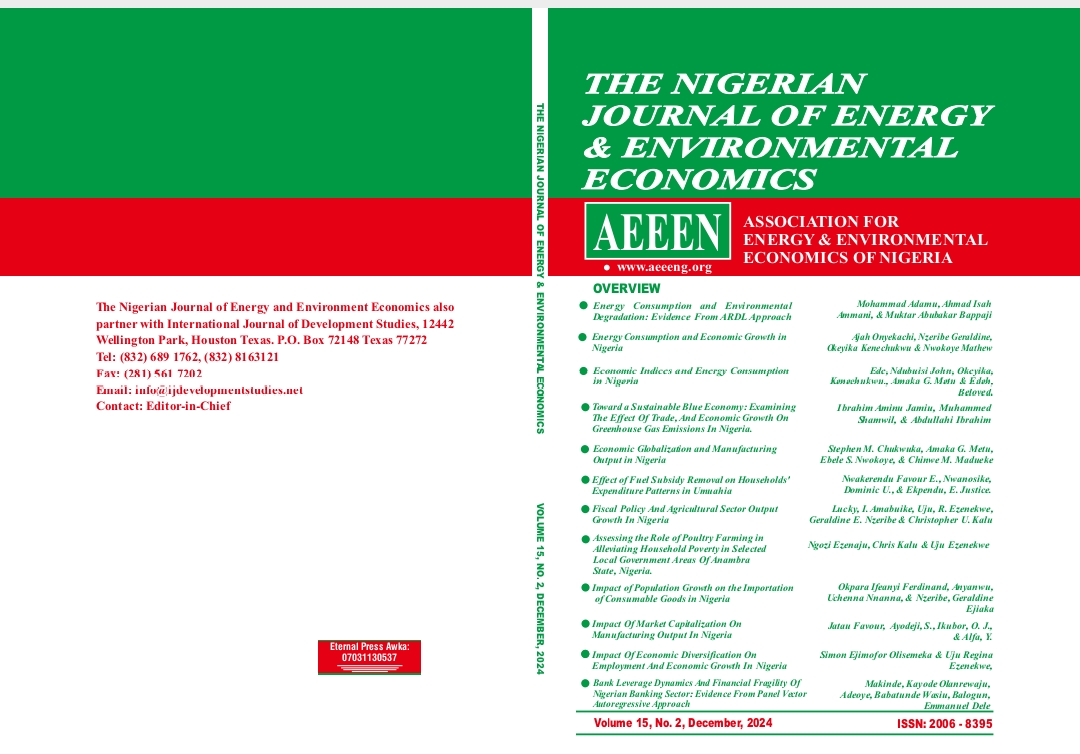BANK LEVERAGE DYNAMICS AND FINANCIAL FRAGILITY OF NIGERIAN BANKING SECTOR
EVIDENCE FROM PANEL VECTOR AUTOREGRESSIVE APPROACH
Keywords:
Bank Leverage, Basel Accords, Capital Requirements, Financial Fragility, PVAR, NigeriaAbstract
The study investigates the linkage between bank leverage and financial fragility of banking
system in Nigeria, employing panel vector auto regression (PVAR) model on quarterly bank
level and industrywide panel data (2006–2023). Empirical findings from the study reveal the
existence of nexus between bank leverage and financial fragility. The results demonstrate how
bank leverage moderately reduces financial fragility among banks in Nigeria, thus suggesting
a forward-looking supervisory oversight for the DMBs characterized with such a higher debt
ratio. The policy implication from the study is that, in curbing the excessive risk-taking
behavior of banks in Nigeria, the regulatory authorities should initiate punitive measures. These
should entail treating a percentage of the banks’ excess credit above the sectorial limit as a
charge against the eligible capital used in computing their capital adequacy ratio. Finally, the
study advises Central Bank of Nigeria to sustain its ongoing policy of stabilizing Naira through
curtailing DMBs’ credits to the private sector during the periods of wide fluctuations of foreign
exchange rate or acute supply of foreign exchange.


